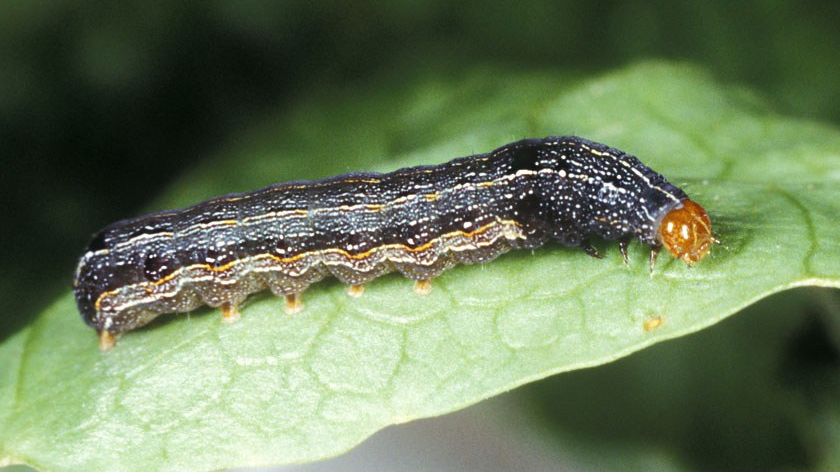Test your plant health knowledge with the plant doctor quiz
>> Latest quiz just added Plantwise plant doctors are at the heart of our plant clinic network providing advice and information to farmers, logging their data for the Plantwise Knowledge Bank, and always adapting to new outbreaks and technologies. Think you’ve got what it takes to be a plant doctor? Take our online plant health…
CABI collaborates on new research which suggests crop pests more widespread than previously known
Insects and diseases that damage crops are probably present in many places thought to be free of them, new research shows. Pests that have not been reported in a certain area are usually assumed to be absent, but analysis by the University of Exeter shows many pests are “currently unobserved, but probably present” (a likelihood…
Plantwise helps with managing the invasive Fall Armyworm in Vietnam
During a recent visit to a plant clinic session in Vinh Phuc, Vietnam, first-hand evidence of this devastating invasive pest was shown to visiting CABI staff. A 76-year-old farmer, Madam Nguyen Thi Nam brought along damaged maize plant to seek advice from the plant doctor, Mrs Dang Thi Quynh Nga.
World Food Prize winner’s vision sown in CABI-led Plantwise programme in Myanmar
World Food Prize Laureate for 2019 Simon N. Groot, founder of East-West Seed, helped train CABI Plantwise plant doctors in Myanmar so farmers can grow more and lose less to pests and diseases (Photo: World Food Prize). Simon N. Groot, the Dutch founder of East-West Seed, has won the World Food Prize 2019 for empowering millions…
Update: New Pest & Disease Records (07 June 2019)
We’ve selected a few of the latest new geographic, host and species records for plant pests and diseases from CAB Abstracts. Records this month include the first report of a novel alphapartitivirus in Rhizoctonia oryzae-sativae, the causal agent of aggregate sheath spot disease of rice; a report on Bursaphelenchus rockyi sp. in peat moss in…
‘Green Super Rice’: Improving smallholder incomes and reducing hunger across Asia and Africa
Scientists and crop breeders in China have produced new varieties of rice called ‘Green Super Rice’ (GSR) to help tackle the global burden of increasing populations, food production and farmer incomes with its 20% increase in yield across varying challenging growing conditions.
Test your plant health knowledge with the plant doctor quiz
>> Latest quiz just added Plantwise plant doctors are at the heart of our plant clinic network providing advice and information to farmers, logging their data for the Plantwise Knowledge Bank, and always adapting to new outbreaks and technologies. Think you’ve got what it takes to be a plant doctor? Take our online plant health…
CABI collaborates on innovative approach to tackling pesticide resistance evolution
CABI is joining an international team of scientists, led by the University of Stirling, to take a ‘revolutionary approach’ in attempting to tackle resistance to pesticides in insects with a specific focus on crops pests in Brazil. The £620,000 study will see UK-based Dr Belinda Luke working on the mass production of fungal biopesticides and formulation development…
CABI-led £1.6 million collaboration helps reduce China’s reliance on harmful pesticides
A CABI-led project involving an international team of remote sensing and plant protection experts is helping China reduce its reliance on harmful pesticides to fight crop pests and diseases including yellow rust fungal disease of wheat and locusts. The £1.6 million STFC Newton Agri-Tech Fund-financed project is leaving a lasting legacy in helping the Chinese Government…









